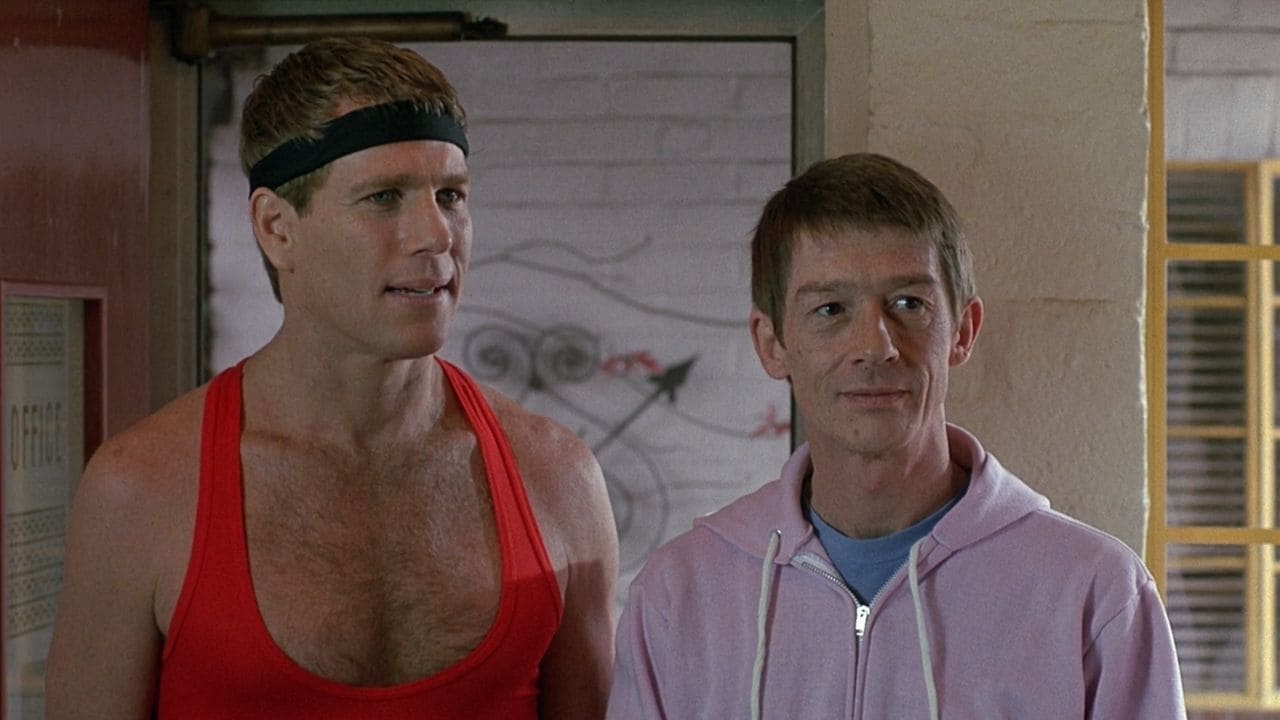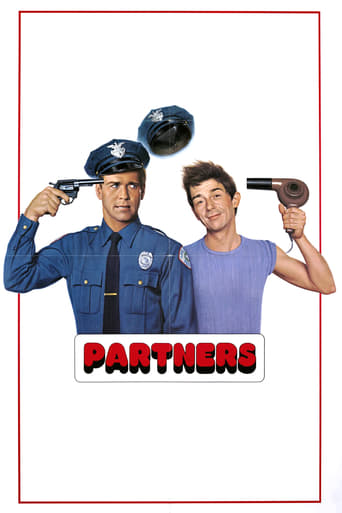

I think this is a new genre that they're all sort of working their way through it and haven't got all the kinks worked out yet but it's a genre that works for me.
... View MoreStrong acting helps the film overcome an uncertain premise and create characters that hold our attention absolutely.
... View MoreMostly, the movie is committed to the value of a good time.
... View MoreThis is a gorgeous movie made by a gorgeous spirit.
... View MoreAfter 35 years, what lifts this movie out of the doldrums of caricature and stereotype is the stellar acting of Hurt, O'Neal and McMillan. The cast stretches from the extremes of defiantly gay to aggressively hetero, with Hurt being (for me) the central character who makes the film work. He's always been one of those rare actors who can make a so-so film worth watching, and an average film light years' better.Screenwriter Veber had no fear of mining the gay lifestyle for laughs here, any more than he did in the classic La Cage Aux Folles 1 & 2. Yet blended into the film is Hurt's tormented Kerwin trying to fit into a straight world by denying his true self, and ending up miserably unhappy anyway. There's a poignancy to his character that gives Partners a seriousness amid all the over-the-top prancing and mincing. O'Neal also rescues Benson from the two dimension, by discovering -- despite his ease and success around the opposite sex -- an emotional depth and devotion to Kerwin that redeems him in the end.All of which makes Partners worth watching again and again.
... View MoreDone with a much lighter touch than Cruising, Partners operates on the same plot premise with the police looking for a serial killer of gay men. Only it's two undercovers that are sent in by the chief played by Kenneth McMillan. One is Detective Sergeant Ryan O'Neal from LAPD homicide. The other is an officer down in records played by John Hurt.I recently wrote an article about a man I knew back in the 80s who had been a McCarthyite victim because he was gay and fit all the stereotypes. Hurt's character is the same, he operates quietly and unobtrusively no doubt seething inside over the stupid homophobic comments made in front of him. When McMillan picks him for the assignment he feigns surprise. So the two go undercover in a gay area as a couple and start to mix and mingle. It's actually O'Neal who discovers there's a serial killer that the regular homicide cops missed. That's because he is a cop first and foremost as hard as he is trying to overcome his preconceived notions about gays.O'Neal and Hurt are fine in the leads. O'Neal looks every bit the hunk he plays. Hurt has the more difficult role and carries it off beautifully.I was very moved by the other reviewer who identified himself as coming from Bible Belt America and how he saw Partners much differently than LGBT people from the coasts. Sometimes the stereotypes might have been over the top in this and other films, but they validated his existence. I can truly relate to that because in the 60s when I was growing up I had even fewer entertainment role models than he probably had. Some of the gags misfire and some of the stereotypes are over the top. But Partners is a film with some real relevancy.
... View MoreStereotypes, how does anyone get them. I've met men and women throughout my life and around the world whom were either shy closet types you'd never know existed, or standing up waving a flag obvious, and everything in between. Some have noted the movie is anti-gay, guess it depends on your attitude and who's watching it, just like anything else. I didn't think it was. To me the movie was a comedy about two reluctant cops balking at crossing orientation lines. And they find out they can work together just fine, co- exist, and the orientation lines blur a bit. I'd tell you my favorite scenes but that would ruin the movie. And except for a guy who's flamboyancy preceded him (funny as hell too), and the guy that used to come to the grocery store in paint, heels, and purse, most of the obvious stereotype stuff is kept indoors in my opinion. This is a funny and entertaining movie that I went looking for again to add to my collection. If your not afraid of the flamboyant stereotypes and have an open mind you're going to love this movie.
... View MoreThe concept of pairing a heterosexual police detective (Ryan O'Niel) with a gay police department employee (John Hurt) in order to go undercover in the gay community to solve a serial murder case could have been handled with mutual respect. However, throughout the film, the homosexuals portrayed fulfill all homophobic stereotypes. They are depicted as lisping, limp wristed, mincing, pastel wearing comic relief. Meanwhile, the heterosexual police detective is portrayed as a womanizing, promiscuous, skirt chaser to convince the audience that he is 100% heterosexual. All dialog between heterosexual police department employees is homophobic, sympathetic to the undercover detective having to pretend to be a "faggot" and derogatory about the "faggot" gay police department employee. They had three opportunities to save the film. The first is when the undercover police partners are arrested along with a gay they attracted in order to interview. The arresting police refer to the trio as "faggots" and "girls", humiliating the gay character. But, Ryan O'Neil's character does no more than ask for the return of the man's clothes: no personal interaction occurs. In a humorous moment, on his way out of the shared apartment with the doting homosexual partner, Ryan O'Neil instinctively gives a quick peck on his partner's cheek. But, Ryan O'Neil's subsequent reaction is disgust. Near the end of the film, Ryan O'Neil's character is trying to encourage his gay partner (John Hurt) by making empty promises of continuing to live together. But, instead of a "The Crying Game" finding of a new found acceptance by the heterosexual lead of his gay love interest, they end the film by having another character taunt Ryan O'Neil's character by telling him that John Hurt's character had believed his empty promises which immediately causes revulsion in Ryan O'Neil's character. They walk away laughing at the expense of the deceived gay man. This is not a gay positive, acceptance learned dynamic by the main characters. This motion picture is one long "faggots are funny" mockery of gay men. If you are gay friendly, this film will infuriate you and have you checking the year it was released (1982) for some clue as to why the studio would release a homophobic film. We tolerated this homophobia in films released before 1969-1973 because of the philosophy of the general audience. But, for 1982, a homophobic "let's make a comedy about a good looking heterosexual man forced to spend time with faggots!" was not a politically correct decision. Why not make a film about a white cop forced to work with a black cop? They would not have done that: white supremacist dialog mixed with denigrative Black stereotypes would have outraged the audience. But, for this studio, screenwriter, director, producer and cast, "faggots are funny" was their objective. This film will only appeal to people who long for the 'good old days' when gays and lesbians were suppressed and legally humiliated.
... View More